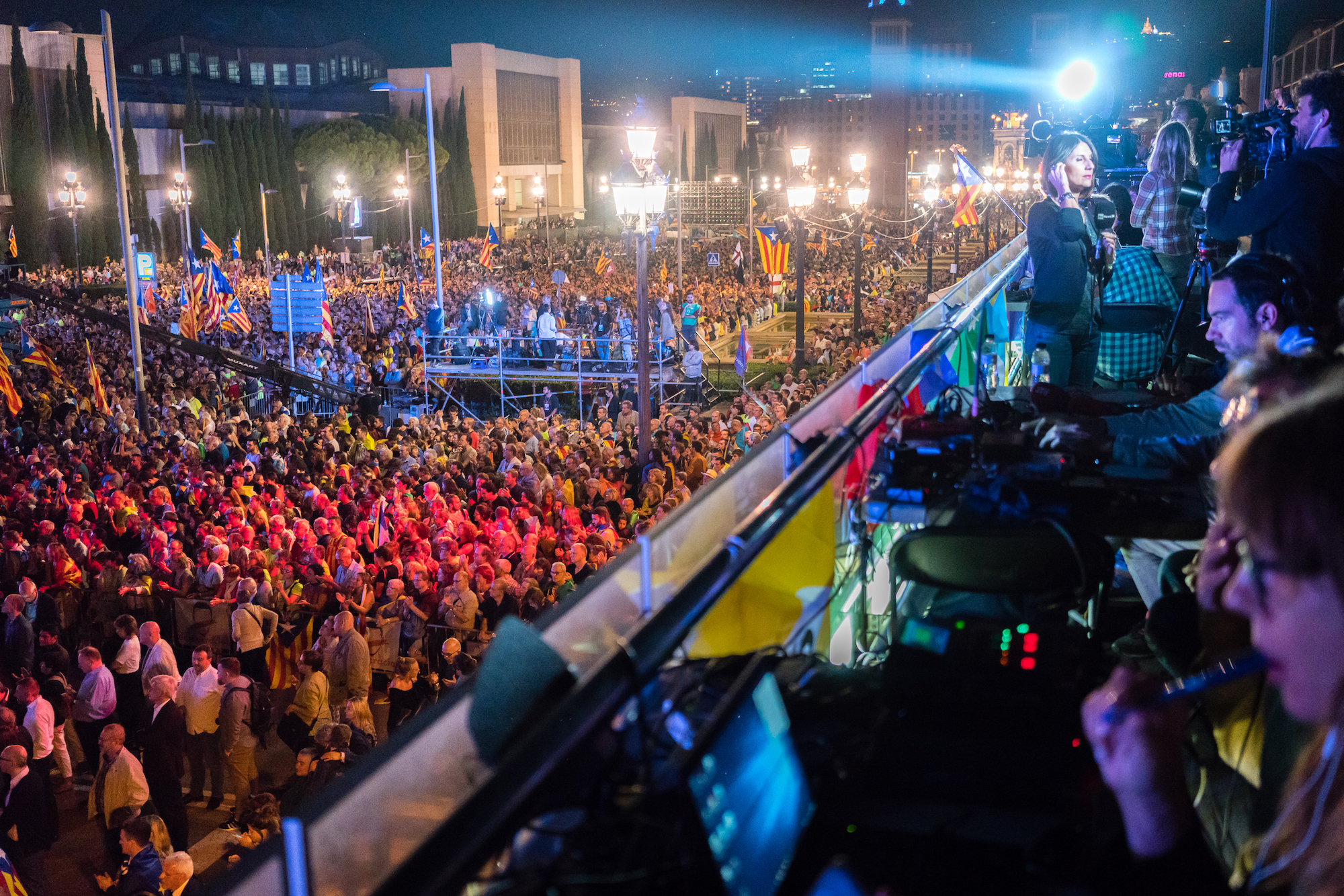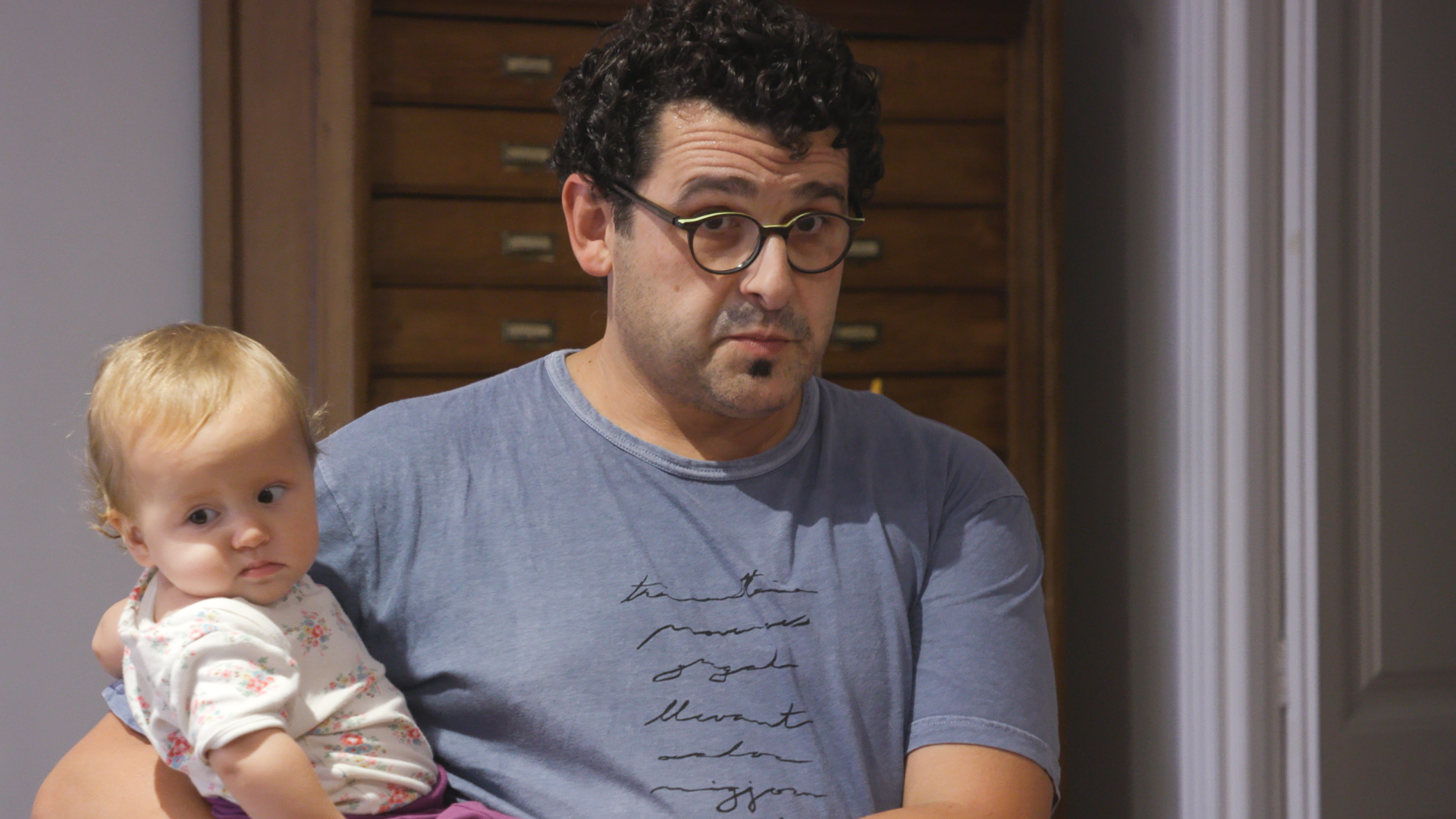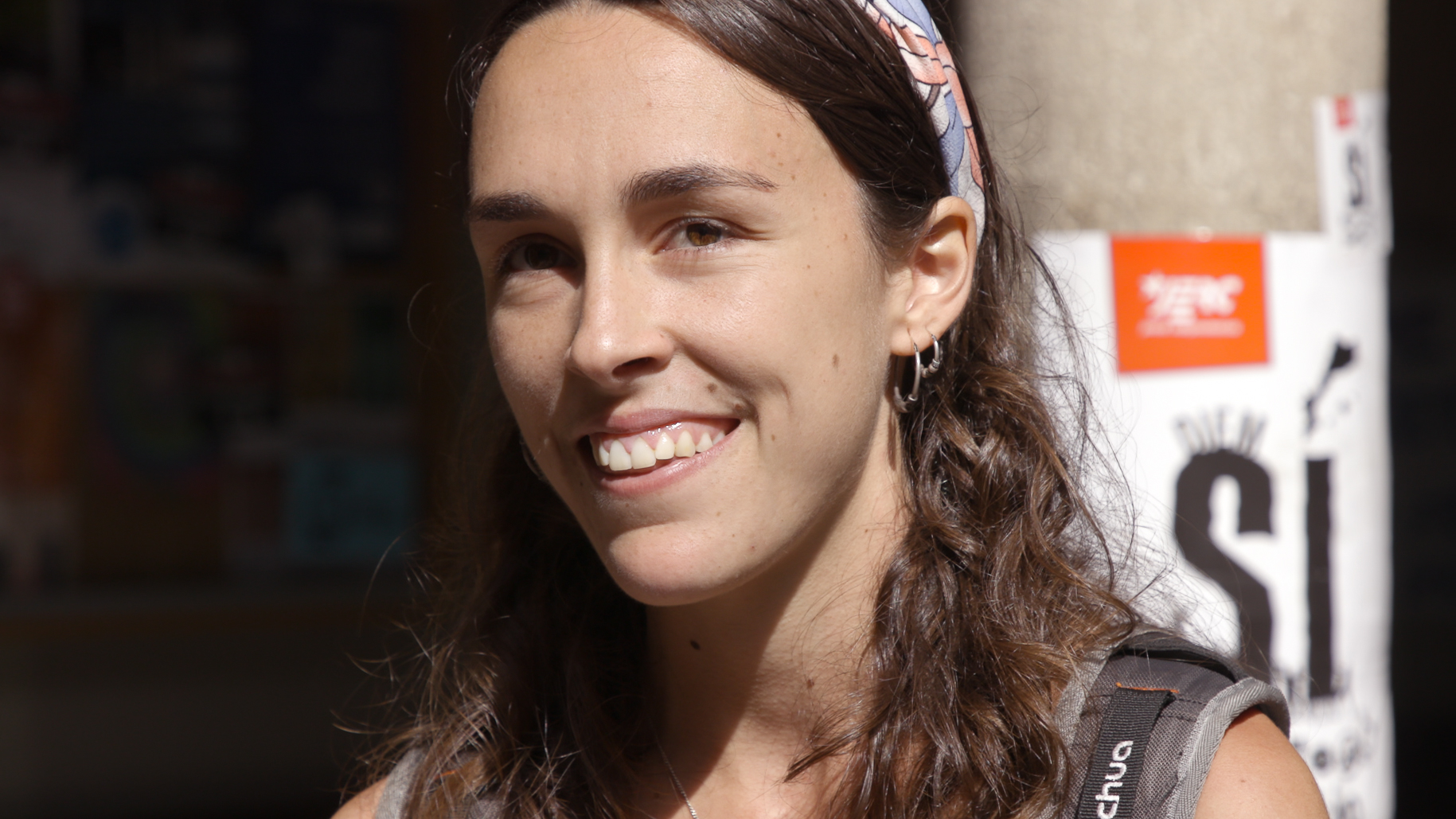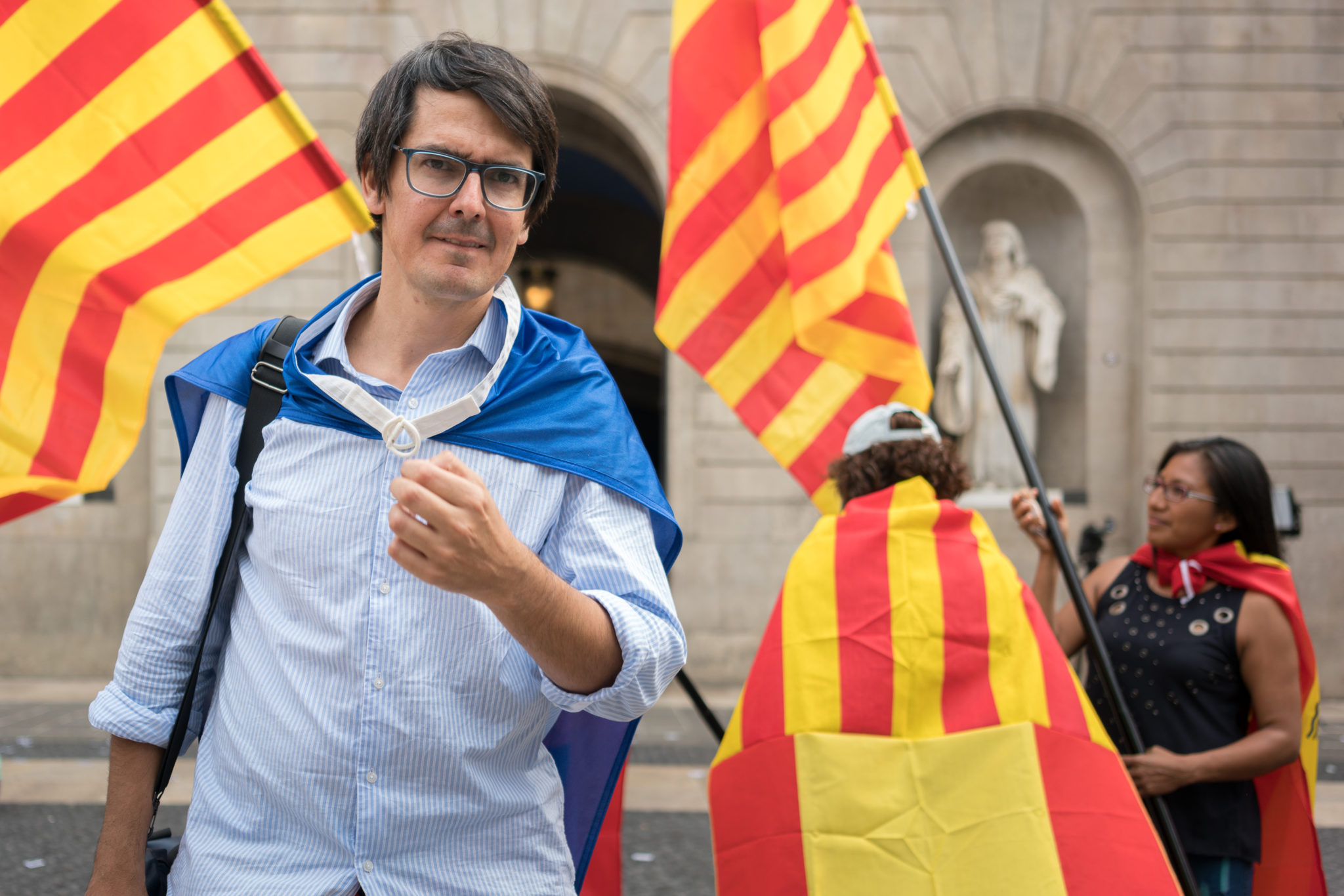BARCELONA — Violence erupted throughout this seaside city Sunday as Spanish national police fought with Catalan voters trying to cast their ballots in a fiercely disputed independence referendum.Spain’s central government sent more than 5,000 national police to block the referendum, which calls for the Catalonia region to break away from Spain. But Madrid’s plan quickly proved disastrous. About 900 people were injured as altercations broke out when police pushed back voters and seized ballot boxes from the schools and public institutions serving as polling stations.Most of the chaos was centered here in Barcelona, the regional capital, where police fired rubber bullets and used batons on voters trying to enter and defend polling stations. The police showing was soon outmatched by activists, who formed human chains and crowded streets to prevent police from accessing the contested polling stations. Thousands more occupied city centers, filling surrounding streets throughout the weekend to prevent police from sealing them off — a tactic that meant the huge crowds of people arriving to vote were able to do so peacefully in most places.More than 2.2 million people — or 43 percent of the region’s 5.3 million registered voters — were still able to cast a ballot in Sunday’s referendum.Catalan leaders said Monday that the 90 percent “yes” vote for independence gives them a mandate. But the Spanish government, which warned in advance that the vote was illegal and nonbinding, says the result has no legal bearing and that most of those who don’t favor independence simply didn’t take part.A recent poll revealed that Catalans are nearly evenly split on the independence question, with 49 percent opposed and 41 percent in in favor.Catalonia is a wealthy region of 7.5 million people in northern Spain. It has its own language and culture and a long history of agitating for independence on both economic and cultural grounds. Its pro-independence regional government already enjoys significant autonomy from Madrid.The result of Sunday’s disputed vote is unlikely to directly pave the way to independence. But anger at the Spanish government’s forceful attempts to repress the vote is likely to push the independence question to the forefront of the political agenda for the foreseeable future.VICE News spoke with Catalans as they attempted to cast their ballots in a referendum that Spain’s Prime Minister Mariano Rajoy insists didn’t happen.Francesc Accensi i Alemany, a scientist and father of three who spent the weekend helping to occupy a school being used as a polling place.
The police showing was soon outmatched by activists, who formed human chains and crowded streets to prevent police from accessing the contested polling stations. Thousands more occupied city centers, filling surrounding streets throughout the weekend to prevent police from sealing them off — a tactic that meant the huge crowds of people arriving to vote were able to do so peacefully in most places.More than 2.2 million people — or 43 percent of the region’s 5.3 million registered voters — were still able to cast a ballot in Sunday’s referendum.Catalan leaders said Monday that the 90 percent “yes” vote for independence gives them a mandate. But the Spanish government, which warned in advance that the vote was illegal and nonbinding, says the result has no legal bearing and that most of those who don’t favor independence simply didn’t take part.A recent poll revealed that Catalans are nearly evenly split on the independence question, with 49 percent opposed and 41 percent in in favor.Catalonia is a wealthy region of 7.5 million people in northern Spain. It has its own language and culture and a long history of agitating for independence on both economic and cultural grounds. Its pro-independence regional government already enjoys significant autonomy from Madrid.The result of Sunday’s disputed vote is unlikely to directly pave the way to independence. But anger at the Spanish government’s forceful attempts to repress the vote is likely to push the independence question to the forefront of the political agenda for the foreseeable future.VICE News spoke with Catalans as they attempted to cast their ballots in a referendum that Spain’s Prime Minister Mariano Rajoy insists didn’t happen.Francesc Accensi i Alemany, a scientist and father of three who spent the weekend helping to occupy a school being used as a polling place. “They are closing websites, interrupting cellphones, attacking computers, the police are hitting old women and ordinary people — not violent people. Politicians must resign over this.Do the king of Spain and the prime minister approve these kinds of things? These people [Spanish national police] should be here to protect the people — not aggress the people.It’s absolutely crazy, it’s weird, it’s absurd. I could never imagine I would be going to occupy a school — for a vote! We got to this point because the politics didn’t work. We are here trying to defend what we think are our civilian rights; it’s as simple as that.It isn’t a case of Spanish are bad, Catalans are good. That position is bullshit. If we go to have a vote and we vote to remain Spanish then I will accept it and go on. I will not like it, but I will go on. We just want to be consulted.I am not prepared for this at all. The situation scares me. I don’t know what will happen now.”Aina Delgado Morell, a medical student at the Universitat de Barcelona and an independence activist.
“They are closing websites, interrupting cellphones, attacking computers, the police are hitting old women and ordinary people — not violent people. Politicians must resign over this.Do the king of Spain and the prime minister approve these kinds of things? These people [Spanish national police] should be here to protect the people — not aggress the people.It’s absolutely crazy, it’s weird, it’s absurd. I could never imagine I would be going to occupy a school — for a vote! We got to this point because the politics didn’t work. We are here trying to defend what we think are our civilian rights; it’s as simple as that.It isn’t a case of Spanish are bad, Catalans are good. That position is bullshit. If we go to have a vote and we vote to remain Spanish then I will accept it and go on. I will not like it, but I will go on. We just want to be consulted.I am not prepared for this at all. The situation scares me. I don’t know what will happen now.”Aina Delgado Morell, a medical student at the Universitat de Barcelona and an independence activist. “After the repression, I think everyone is talking about democracy. It’s not only about what we are voting on but also the right to express and to exercise the right to self-determination.We can say that they are using the same techniques as Franco [Spain’s former dictator]. They are sending the police forces as if they were military forces to control peaceful people who are not doing anything wrong.”Carlees Brugueras, an economist and Spanish unionist, and one of the few anti-independence voters who took to the streets to protest the independence movement.
“After the repression, I think everyone is talking about democracy. It’s not only about what we are voting on but also the right to express and to exercise the right to self-determination.We can say that they are using the same techniques as Franco [Spain’s former dictator]. They are sending the police forces as if they were military forces to control peaceful people who are not doing anything wrong.”Carlees Brugueras, an economist and Spanish unionist, and one of the few anti-independence voters who took to the streets to protest the independence movement. “The independentists have a powerful lobby. But they don’t know that this is going to be a disaster to the Catalan economy and to the Spanish economy and to our social relationships. We have to get back together. We cannot be separated. And going against the law is not what we need.If you’re an independentist, it’s easy because you’re up against something clear: Spain. They say, ‘Spain hates us, we are against Spain, against Madrid, against Rajoy.’ It’s not easy to go against such a movement.”
“The independentists have a powerful lobby. But they don’t know that this is going to be a disaster to the Catalan economy and to the Spanish economy and to our social relationships. We have to get back together. We cannot be separated. And going against the law is not what we need.If you’re an independentist, it’s easy because you’re up against something clear: Spain. They say, ‘Spain hates us, we are against Spain, against Madrid, against Rajoy.’ It’s not easy to go against such a movement.”
Advertisement

Advertisement

Advertisement

